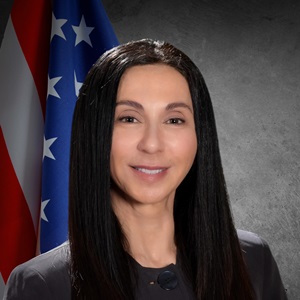Lil Alessa
Lilian Alessa
Professor, Co-director of the Center for Resilient Communities
AA 308
Dr. Lilian Alessa, University of Idaho President's Professor of Resilient Landscapes in the Landscape Architecture program, is also Co-Director of the University of Idaho Center for Resilient Communities. She conducts extensive research on human adaptation to environmental change through resilient design at landscape scales. Much of her work is funded by the National Science Foundation, including projects awarded the Arctic Observing Network, Intersections of Food, Energy and Water Systems (INFEWS) and the Dynamics of Coupled Natural Human Systems programs. Canadian-born and raised, Alessa received her degrees from the University of British Columbia. She also uses her expertise is in social-ecological and technological systems science to develop ways to improve domestic resource security for community well-being, particularly through the incorporation of place-based knowledge. Her work through the Department of Homeland Security's Center of Excellence, the Arctic Domain Awareness Center, involves developing social-technological methods to monitor and respond to critical environmental changes. Lil is a member of the National Science Foundation's Advisory Committee for Environmental Research and Education and is on the Science, Technology and Education Advisory Committee for the National Ecological Observing Network (NEON). Professor Alessa also teaches a university landscape architecture capstone course: Resilient Landscapes with Professor Andrew Kliskey. Professor Alessa’s collaborative grant activity with Professor Andrew Kliskey, since coming to the university in 2013, exceeds 7 million USD to date. She has authored over 100 publications and reports and has led the development of 2 federal climate resilience toolbox assessments, the Arctic Water Resources Vulnerability Index (AWRVI) and the Arctic Adaptation Exchange Portal (AAEP).
- Alessa, L., Kliskey, A. 2012. The role of agent types in detecting and responding to environmental change. Human Organization 71(1): 1-10.
- Kliskey, A., Alessa, L. 2011. The role of Fresh Water in Alaska's Communities. In: North By 2020 - Perspectives on Alaska's Changing Social-Ecological Systems. A. Lovecraft and H. Eicken. University of Chicago Press: Chicago, IL. Chapter 3.4.
- The Hi'iaka Working Group (Alessa, L., Johnson, J., Kealiikanakaoleohaililani, K., Kingston, D., Kliskey, A., Louis, R., et al.). 2011. Indigenous Knowledges driving Technological Innovation. AAPI Nexus Journal 9(l &2): 241 -248.
- Alaska EPSCoR, "Alaskans Adapting to Changing Environments" primary author and Project Director.
- Social Ecological Systems Resilience and Natural Resource Management in Alaska: 5 Grants, National Science Foundation.
- Arctic Observing Networks: The Bering Sea Sub Network (National Science Foundation, U.S. and Russian Academy of Sciences, Russia): 2 Grants, National Science Foundation.
- University of Alaska Anchorage, Chancellor's Award for Research Excellence Recipient 2011
- University of Alaska Anchorage, Chancellor's Award for Research Excellence Nominee 2010
- University of Alaska Anchorage, Chancellor's Award for Research Excellence Nominee 2008
- University of Alaska Anchorage, Excellence in Teaching Award Recipient 2007







